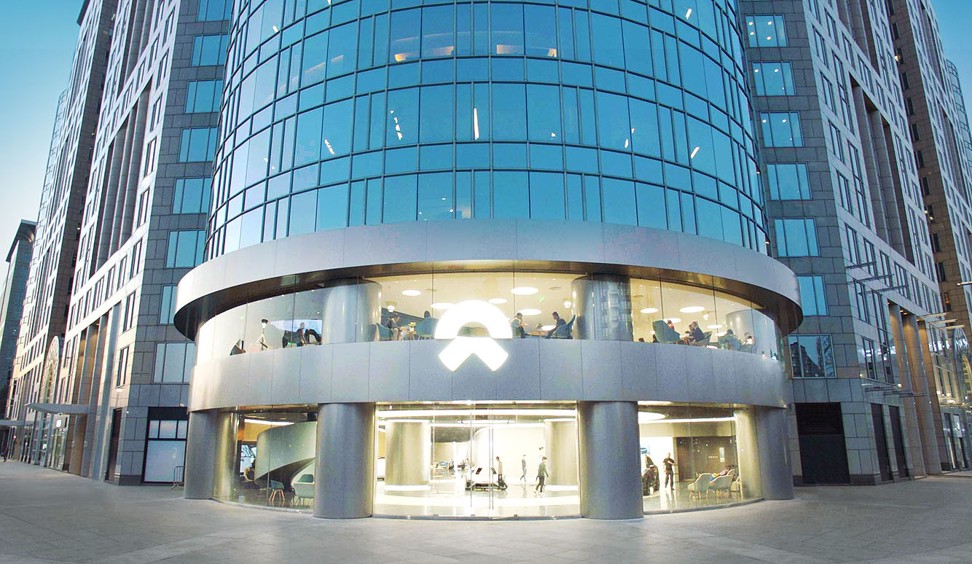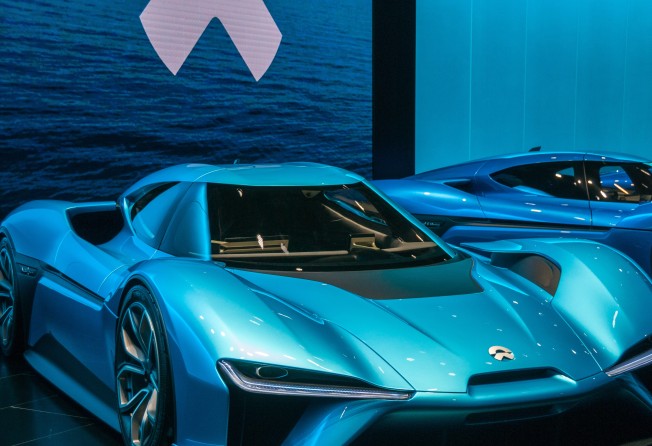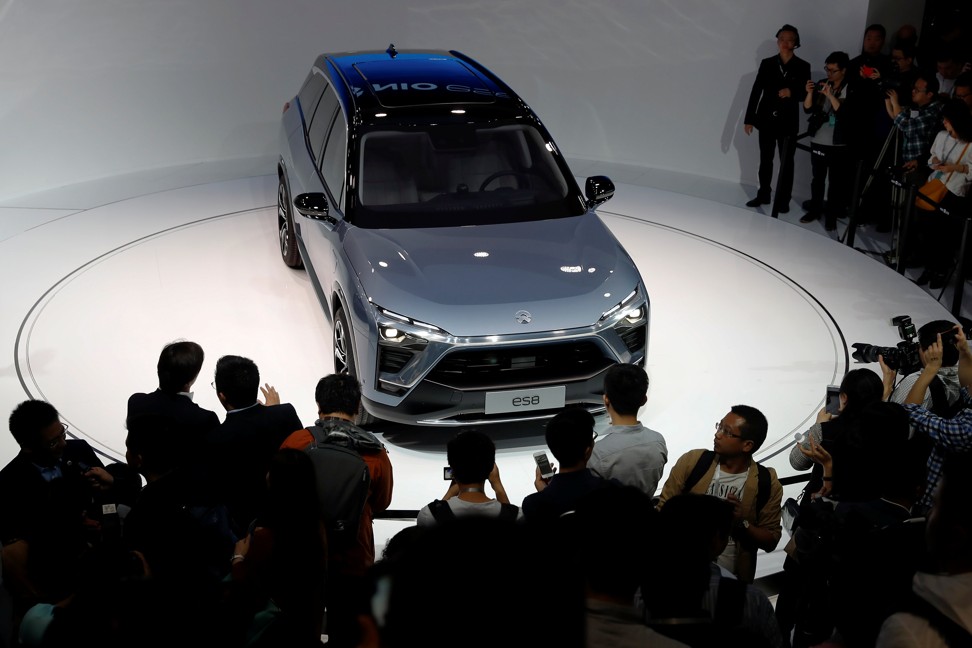
Hong Kong Jockey Club helped inspire this Tesla challenger's Beijing showroom
Tesla led the move to put showrooms in shopping districts – now NIO is taking it a step further with the ‘car club’ concept

With more than 70 electric vehicle (EV) models to choose from, mainland Chinese consumers are spoiled for choice – which is why one carmaker looked to racing when it came to separating itself from the pack: Horse racing, that is.
Inspired by the members-only business model of the Hong Kong Jockey Club, Tencent-backed start-up NIO has just opened a 3,000 square metre “clubhouse” in an upmarket Beijing shopping district as part of a strategy to burnish its own brand and challenge Telsa Motors and others in how EV carmakers sell to customers.
“I am often invited by [Jockey Club] members to have dinner [at the club in Beijing],” William Lin Bin, founder of NIO, said at the launch of NIO House on the weekend. “The membership is 250,000 yuan, but I didn’t feel particularly happy [to pay]. So I thought … can tens of thousands of our customers enjoy the same privilege at our store?”

Traditionally, car showrooms are located out of the city centre where rents are cheaper. Tesla led the move to put showrooms in shopping districts. Now NIO is taking it a step further with the “car club” concept.
On the ground floor of the store visitors can check out NIO’s cutting edge electric cars including the EP9, which it claims is the fastest electric car in the world, and the Formula E car, which is expected to race in Hong Kong’s E Prix in December as part of NIO’s own racing team.
On the second floor the carmaker has designed a cafe, library and a play area for children. Li said the idea is to build an NIO community where customers can get to know each other.
The Shanghai-based start-up said it has plans to open more stores in other cities in China next year.
China, which has vowed to cap its carbon emissions by 2030 as part of broader efforts to tackle air pollution, has signalled it will gradually get rid of vehicles using petrol and diesel.

As a result, competition among local and foreign electric car makers in China is intense, with around 25 new EV models introduced in 2016. Chinese consumers can choose from around 75 EV models – more than in any other country.
NIO also wants to offer on-demand charging services so that customers can have their car batteries charged while they are at the office, according to Izzy Zhu Jiang, vice-president of user development at NIO in Shanghai.
“From a consumer’s standpoint, having to recharge the batteries is the most inconvenient factor,” Zhu said in an interview on the sidelines of a technology conference in Shanghai on Monday.
Zhu said that market leader Tesla developed its electric cars and charging networks with the US market in mind, but the model does not work in China as most Chinese drivers do not have garages that allow them to charge their car at home.
To solve this problem, Zhu said NIO will offer an on-demand charging service for its users. For example, drivers can call a service person to take their car for a recharge while they are working at their office, and have the vehicle returned before they knock off work. Drivers will no longer need to go looking for charging stations on their own, he said.
The strategy is part of NIO’s effort to create an ecosystem that solves the challenges Chinese users face when it comes to owning an electric car, and make them more appealing and accessible to the market, he added.
Since establishing in 2014, NIO has raised capital from several investors including Chinese tech firms Tencent, Baidu and Lenovo, private investment firms TPG and Sequoia Capital, and Singapore’s sovereign wealth fund Temasek.